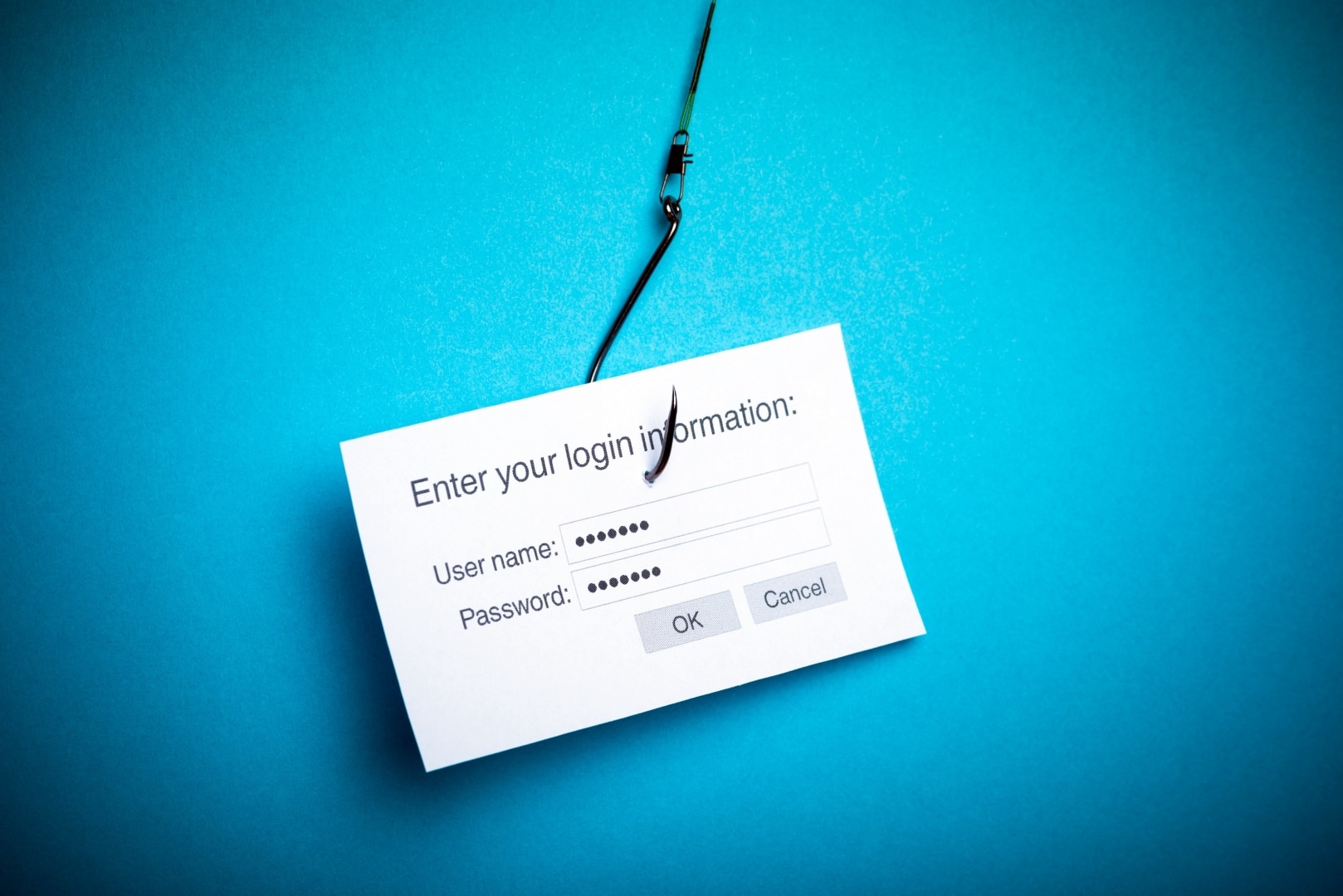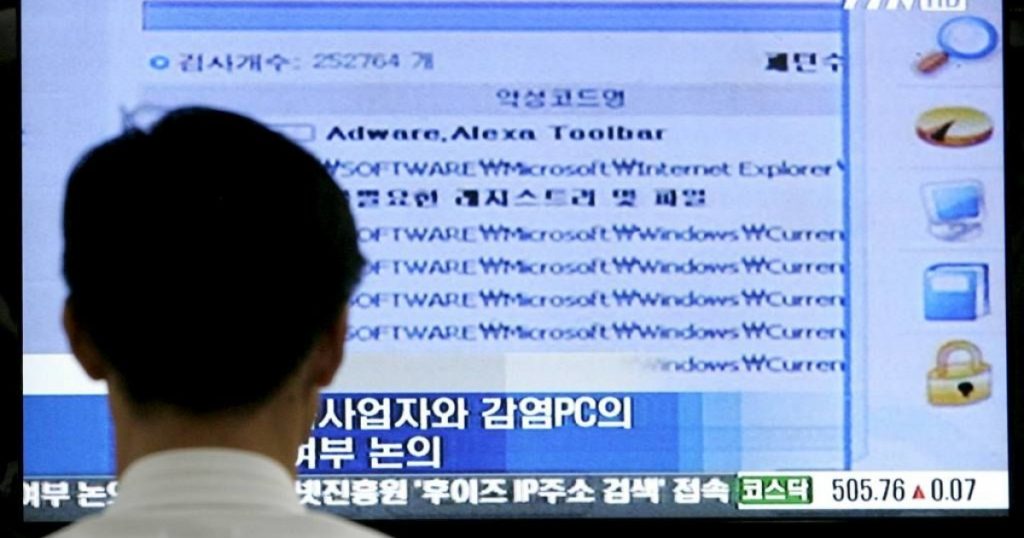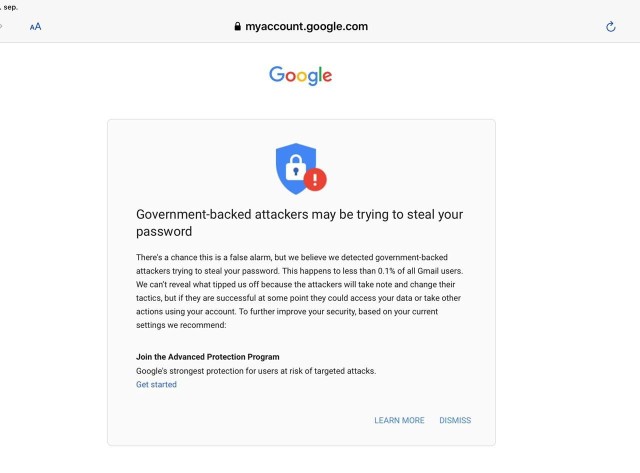Chinese minority groups abroad are exposed to frequent hacking attempts, the most recent of which came from Facebook. Platform Report On their website they have stopped the attempt to spy on Uyghurs living outside of China.
Facebook isn’t the only one. Google also sends out frequent alerts to minorities in China overseas. One of them is the Norwegian Uyghur Commission.
«Ops! State authorities are trying to take your password. “
This sentence is almost always at the top of the committee email address, and they also receive such emails.
Piracy attempts have increased in recent years. It takes some time before we get information from Gmail that hackers are trying to take our password, says Adiljan Abdurihim for TV 2. He is the secretary of the committee.
To TV 2, Adiljan Abdurihim sends a screenshot of the notification he receives from Google. Photo: Private
Hacked without knowing it
The Norwegian Uyghur Committee criticizes the Chinese authorities for their persecution and suppression of the rights of Uighurs in Xinjiang.
According to Abdel-Rahim, China is behind the attacks.
He says the attacks are a kind of attempt to threaten Uighurs in exile and force them to remain silent. In addition, China is trying to warn Uighurs that family members may be punished for their activities abroad.
Adljan Abdul Rahim is the secretary of the Norwegian Uyghur Committee. Photo: Private
Hacker attacks also happen to collect more information and gain greater access to those who may already be identified, or to obtain information that could be misused, he says.
Abdul Rahim says they receive several reports of concern from Uighurs in Norway.
He says clicking on a link can be harmful, and we fear many will be hacked, often without knowing it.
• When China occupied East Turkestan in 1949, they changed the name of the region to Xinjang. The region is the largest in China, covering an area four times the area of Norway.
Uyghurs come from Xinjiang in northwest China.
The Uyghurs belong to a Muslim minority of Turkish descent.
• The Chinese authorities are accused of widespread repression of the Uyghurs.
It uses two phones
The Norwegian Uyghur Committee recommends its members use something called dual mandate, and Abdul Rahim says they have contacted experts for training on how to protect themselves in the digital world.
We know that many Uyghurs, for example, use two cell phones. He says one of them is only used for Chinese applications.
Abdul Rahim says they have also reported the hacking attempts on PST, and that they have informed the PST of the various methods that the Chinese authorities are using against them.
once a month
Uyghurs are not the only group in Norway to have suffered computer attacks.
The Norwegian Tibetan Commission is also receiving similar warnings from Google that hackers supported by authorities of another country are trying to take their password.
Such e-mails are frequently received by the Norwegian Tibetan Commission. Photo: Private
Merethe Lind Jodalen is the commission’s general manager, and he told TV 2 that they used to live with hacking attempts.
We get such a letter about once a month. We know it happens a lot with everyone else too, but they take it in private, she says.
I got a phone call from PST
Before the epidemic, they were visited regularly by politicians from the Tibetan government in exile, and in connection with these visits, they encountered several other cases of computer attacks.
– With regard to a visit to the Tibetan government in exile, our email was hacked, she says.
Merethe Lind Jodalen says data attacks are a threat. Photo: Private
Then the Norwegian Tibet Committee received a phone call from the PST requesting a meeting.
They told us that we were under surveillance, possibly from China, and that our email had been hacked, she says.
The site has been hacked
The commission’s website was also hacked. According to Jodalen, this was an advanced attack on the computer.
– Many links were hacked, and the people who had to click on the links came to unpleasant places like porn sites, she said.
Jodalen adds that they now have a routine for changing passwords and that they are choosing encrypted platforms to communicate.
She says they have no evidence that the attacks came from China, but they assume they are of Chinese origin.
The deputy commander also adds that the attacks could be interpreted as a threat.
– We are not witnessing that he is being targeted, but rather is a form of threat: “Remember, we know about you and we know what you are doing.” She adds that it’s a big problem because it’s more than just uncomfortable.
Expect high activity
Martin Prinsen is a Senior Consultant at PST. He told TV 2 that computer attacks happen all the time, but they don’t have the opportunity to comment on what PST is doing with the advice they receive.
Martin Pearson of PST Photo: Liz Cerrod
– All information we receive is registered on the PST. Then we evaluate the tips. But it’s not always easy to provide feedback to mentors about what may or may not be done, says Bernsen.
He says the PST cannot comment on individual cases or the situation for Uyghurs, but it does talk about the difficulties in finding answers to cases like refugee entrepreneurship.
In the field that we call “leadership in the refugee field”, there are a number of countries that are involved in harassment or persecution of persons or ethnic groups in Norway. Often times, getting an answer to these issues can be very difficult. PST has data within Norway, and refugees are often piloted across country borders.
I National PST Threat Assessment 2021 She says threats in the digital space will continue this year as well.
The assessment indicates that the digital threat from government agencies is serious, and there is no indication that it will be diminished.
The journalist behind this article, Aysun Yazici, is a Turkish journalist living in exile in Norway. It is affiliated with the State Department on TV 2.

“Organizer. Social media geek. General communicator. Bacon scholar. Proud pop culture trailblazer.”

)









More Stories
-I'm still a communist
It will make SV Temu more expensive – and Fretex cheaper
Kim Kardashian met with Kamala Harris at the White House